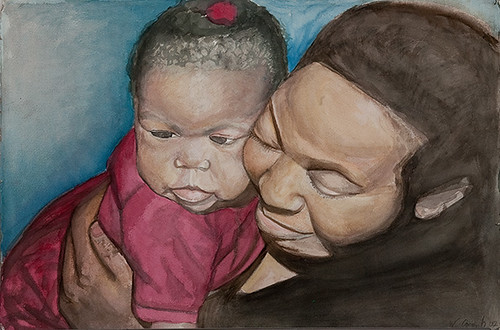Good morning, all — good Monday to you!
Yesterday was mother’s day, which can be a straightforward celebration for some people, and quite complicated for others. Yesterday, I was thinking about those of us who can’t find cards at the Walgreen’s or at Hallmark that say what we really want to say to our mothers, who can’t take those flowery cards that say, “Thanks for always being there for me, Mom. Thanks for being my rock and my constant support. I know it was a struggle to deal with me sometimes, but you had faith in me even when I didn’t have faith in myself…” Those of us who are looking for the cards that say, “You were a disaster and yet I still find myself aching for a relationship with you” or “I wish I hadn’t had to be your rock and your constant support” or “I missed you for a lot of my childhood, but I’m glad that we can have a relationship now” or — what would your Mother’s Day card say? I always just go for blank cards these days, when at the store shopping for Mother’s or Father’s Day — the regular, pre-printed cards with that Hollywood-Mother message just won’t work for me, and my mom and I have a pretty good relationship these days. It’s just that we don’t have one based on revisionist history; we have one based on the facts of our lives, which are too painful for Hallmark to make pithy and flowered-pink.
A day devoted to celebrating mothers and all of their hard and unhonored work is deeply important in a culture that devalues women, devalues mothering, devalues childcare. In America, this holiday began as a day calling for peace — in 1870, Julia Ward Howe wrote a Mother’s Day Proclamation, after the death and destruction that she witnessed during the Civil War:
We women of one country will be too tender of those of another
country to allow our sons to be trained to injure theirs. From
the bosom of the devastated earth a voice goes up with our own.
It says “Disarm, Disarm! The sword of murder is not the balance
of justice.”
Interesting, isn’t it, that our national celebration has strayed so far from these civilly-disobedient roots? This wasn’t meant to be a day to reify the supposed perfection of mothers (which is in and of itself a further violence), but rather a day on which mothers’ demand for peace and the security of their children would be witnessed and attended to.
For those of us who are survivors of any sort of abuse or family trauma, for those of us from families where we didn’t have peace or safety, these family holidays can be a triggering time. Please be gentle with you. If you found yourself short or angry or snappish yesterday, maybe take some time for you today. Take a walk, get a massage (look for sliding scale offerings, or schools), try some yoga (the women’s building in SF has low cost classes), make room for yourself to cry or rage or laugh — or all of the above and more.
Want to write some, too? A place to begin might be with those cards. What if you or your character sent a Mother’s Day card that said everything you/they wanted to say? You might start with the phrase, On Mother’s Day, I want to say–
Or, too, you might write about a Mother’s Day Celebration that stayed true to Julia Ward Howe’s original vision: what if Mother’s Day was a day to listen to and honor mothers’ demands that their children, that all mothers’ children, be kept safe and secure? What if all mothers believed this was their right and responsibility, and they kept it well? What would our world look like?
Or, let your prompt be the image at the top of this post. What does that image bring up for you? Let that be your starting place…
As always, follow your writing wherever it seems to want to go!
Thank you for all the mothering you have done, for yourself, for your friends, for your family, even and especially all that work that has gone unrecognized. Thank you for the creative ways you show up for others, and for yourself! Thank you for all of your words.


2 responses to “after mother’s day”